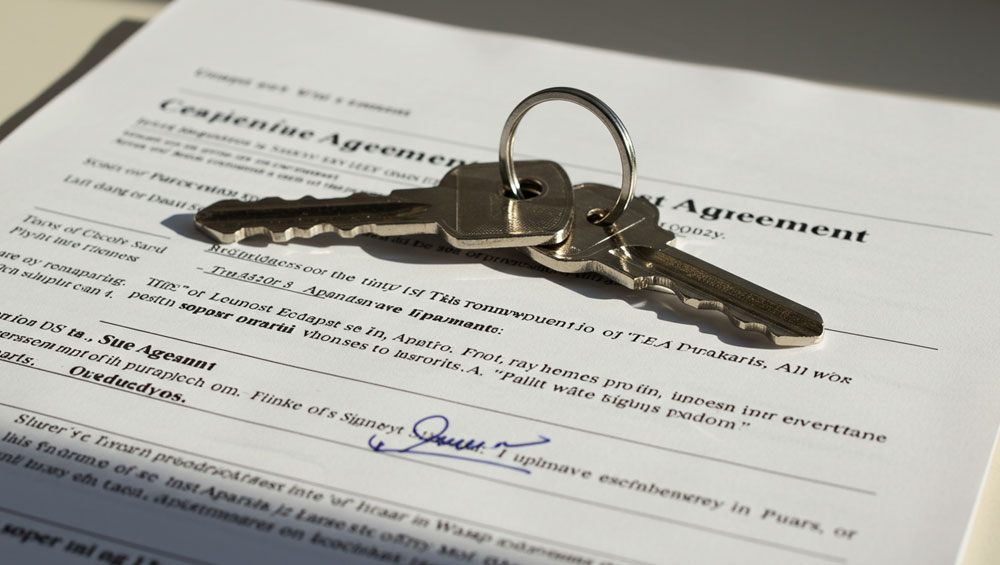Leasebreaking can be a challenging process, especially if you are unsure about the legal and financial implications. Whether you need to move due to work, personal circumstances, or a desire to buy an apartment, understanding your rights and responsibilities is crucial. This guide will help you navigate lease break options, minimize penalties, and make informed decisions.
Understanding leasebreak and its implications
Breaking a lease, commonly referred to as a leasebreak, occurs when a tenant ends a rental agreement before its official expiration date. This can happen for various reasons, such as job relocation, financial difficulties, or personal circumstances. While it may seem like a simple decision, leasebreaking has legal and financial consequences that tenants should carefully consider. Knowing your lease terms and the potential outcomes can help you take the right approach.
Common reasons for leasebreaking
Tenants may choose to break a lease due to various circumstances, including:
- Job relocation – Moving to a new city for work.
- Financial hardship – Difficulty in paying rent due to income changes.
- Health or family reasons – Medical emergencies or family obligations.
- Unsuitable living conditions – Issues with the apartment, landlord, or neighbors.
- Buying an apartment – Transitioning from renting to homeownership.
Each of these reasons comes with different challenges, and tenants should explore all available options before making a final decision.

The legal aspects of breaking a lease
Breaking a lease comes with legal responsibilities. Tenants must review their lease agreements to understand penalties, such as security deposit loss or rent obligations until a replacement is found. Some leases allow early termination with notice, while others require landlord approval. Consulting tenant rights laws ensures a smooth process.
Reviewing your lease agreement
Before taking action, it’s essential to carefully review the lease terms. Many rental agreements outline specific conditions under which a lease can be terminated early. Some leases include a break clause, which allows tenants to leave under certain conditions, while others may require penalties or advanced notice. Knowing what your contract states can prevent unexpected issues.
Tenant responsibilities and potential penalties
When a tenant breaks a lease, landlords may impose penalties such as:
- Losing the security deposit.
- Paying a lease termination fee.
- Covering rent until a new tenant is found.
- Potential legal action if the contract is breached.
Understanding these potential costs can help tenants prepare financially and explore possible alternatives to mitigate penalties.
Leasebreak options for Toronto tenants
Toronto tenants have several lease break options, including subletting, lease assignment, or negotiating an early termination with the landlord. Subletting allows another tenant to take over temporarily, while lease assignment transfers full responsibility. Negotiation can also lead to reduced penalties. Understanding lease terms helps tenants choose the best option.
Subletting your apartment
Subletting is one of the most common solutions for breaking a lease. If your landlord permits it, you can rent your apartment to another tenant who will take over the remaining lease term. This option allows you to avoid penalties while ensuring the property remains occupied. Make sure to follow local rental laws and get written permission from your landlord before proceeding.
Assigning the lease
Lease assignment involves transferring your lease to a new tenant who assumes full responsibility for the contract. Unlike subletting, in a lease assignment, the original tenant is completely removed from any legal obligations. This can be a great option if your landlord agrees and you find a responsible tenant to take over your lease.

Negotiating with your landlord
In some cases, landlords may be willing to negotiate a lease termination agreement. This can include finding a replacement tenant, offering an early termination fee, or allowing you to leave under specific conditions. Open communication and a reasonable proposal can improve the chances of a favorable outcome.
Finding a new apartment after leasebreaking
If you are breaking a lease to move to a new apartment, exploring available rental and buying options is essential. Whether you are looking for a new rental or planning to buy an apartment in Toronto, make sure to check the best listings:
- Explore Toronto rent options to find a new place that suits your budget.
- Browse to buy apartment listings if you are ready to transition into homeownership.
Finding a new apartment can take time, so start your search early. Compare rental prices, check lease terms, and ensure your new home meets your requirements before finalizing the leasebreak.
Tips to avoid penalties when breaking a lease
To minimize penalties, tenants should provide sufficient notice, find a replacement tenant, or negotiate directly with the landlord. Some landlords accept lease transfers or reduced termination fees. Knowing tenant rights and following lease agreements ensures a smoother transition while avoiding unnecessary financial burdens. Seeking legal advice can also help.
Provide sufficient notice
Most lease agreements require tenants to provide at least 30-60 days’ notice before moving out. Informing your landlord early can improve your chances of avoiding additional penalties. Always provide written notice to ensure there is a clear record of your communication.
Find a replacement tenant
If your landlord agrees, securing a new tenant before leaving can help minimize any financial burdens associated with breaking a lease. Many landlords are willing to accommodate a lease transfer if a qualified tenant is found.

Understand your rights as a tenant
Familiarize yourself with local tenant laws to ensure that your landlord follows the legal process and does not impose unfair penalties. Consulting a real estate attorney or tenant advocacy group can provide additional guidance and support.
To summarize
Leasebreaking is a significant decision that requires careful planning and understanding of legal responsibilities. Whether you choose to sublet, assign your lease, or negotiate an agreement with your landlord, ensuring a smooth transition is crucial. If you need to rent a new apartment or buy an apartment in Toronto, explore reliable options to find the best fit for your needs.





